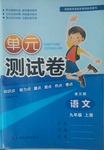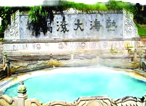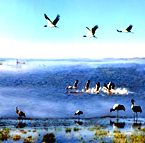题目内容
The Grade 8 students in our school ________ here for one and a half years already.
A.study B.studied C.are studying D.have studied
 阳光试卷单元测试卷系列答案
阳光试卷单元测试卷系列答案Does winter mean a boring time at home? Winter can be interesting too! Let’s enjoy some winter fun across China together.
| Tengchong hot springs (温泉) Hot springs in Tengchong, Yunnan Province are very special. Some are near rivers and some are in forests. You can enjoy beautiful sights when having a bath. You can also try to cook eggs in the spring. The most famous hot spring in Tengchong is Dagunguo. The water temperature is about 97 °C. |
| Winter fishing in Chagan Lake December and January are the Chagan Lake winter fishing seasons. The lake is in Jilin Province. It is frozen in winter. People there cut holes in the ice and go fishing. They wear fur hats and coats. If you go there, you may want to share a bowl of their delicious fish soup and their joy. |
| Birdwatching at Caohai Lake Caohai Lake in Guizhou Province is a great place for birdwatchers. The lake covers an area of more than 30 square kilometers. More than 100,000 migratory birds (候鸟) live there during the winter. There are 230 kinds of birds there. Among them are 70 kinds of rare birds. Black-necked cranes, the only plateau (高原) cranes in the world, fly to the lake between October and November and leave in March and April. |
1.You can ________ in the hot springs in Yunnan.
A.have a bath B.see plateau cranes C.see ice D.cut holes and fish
2.If you want to see black-necked cranes, you can go to ________.
A.Tengchong hot springs B.Chagan Lake
C.Caohai Lake D.Dagunguo
3.Chagan Lake is in ________.
A.Tengchong B.Yunnan Province C.Jilin Province D.Guizhou Province
4.There are ________ kinds of rare birds in Caohai Lake.
A.100,000 B.230 C.97 D.70
5.Which of the following is TRUE according to the passage?
A.In winter, Chagan Lake is hot and you can cook eggs in it.
B.Black-necked cranes may fly to Caohai Lake in August.
C.October and November are the Chagan Lake winter fishing seasons.
D.Caohai Lake is over 30 square kilometers in size.




